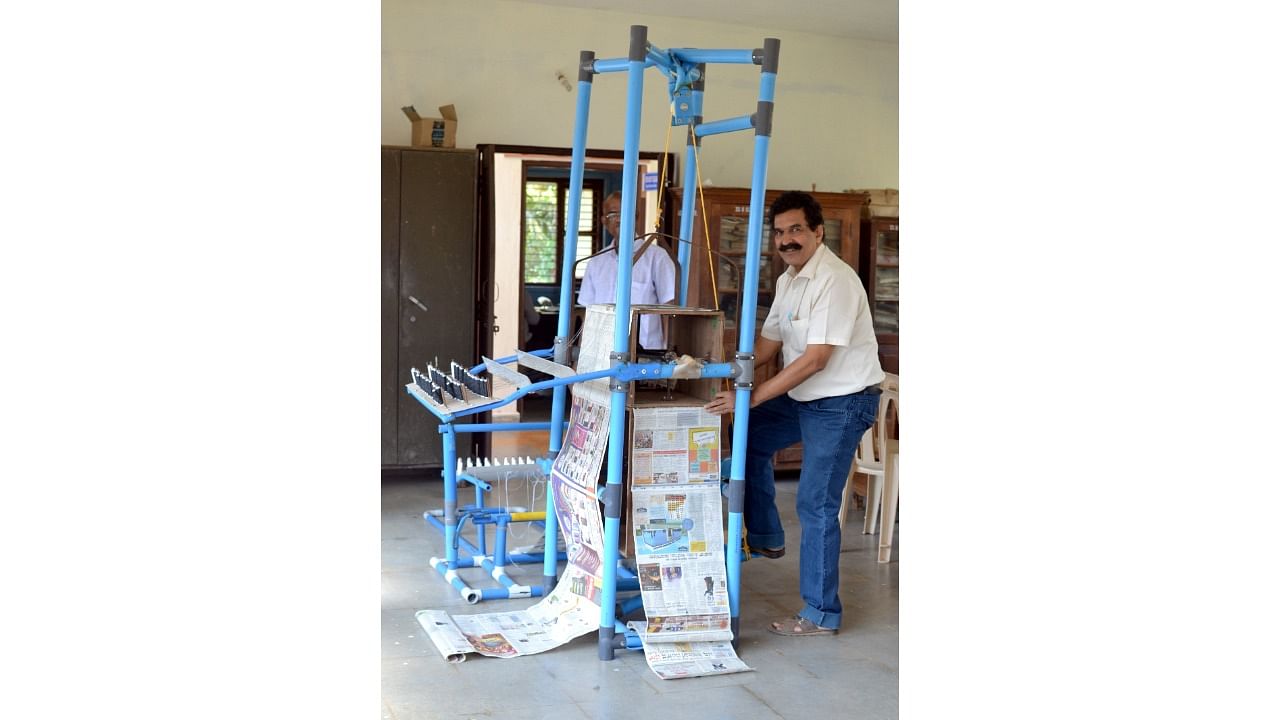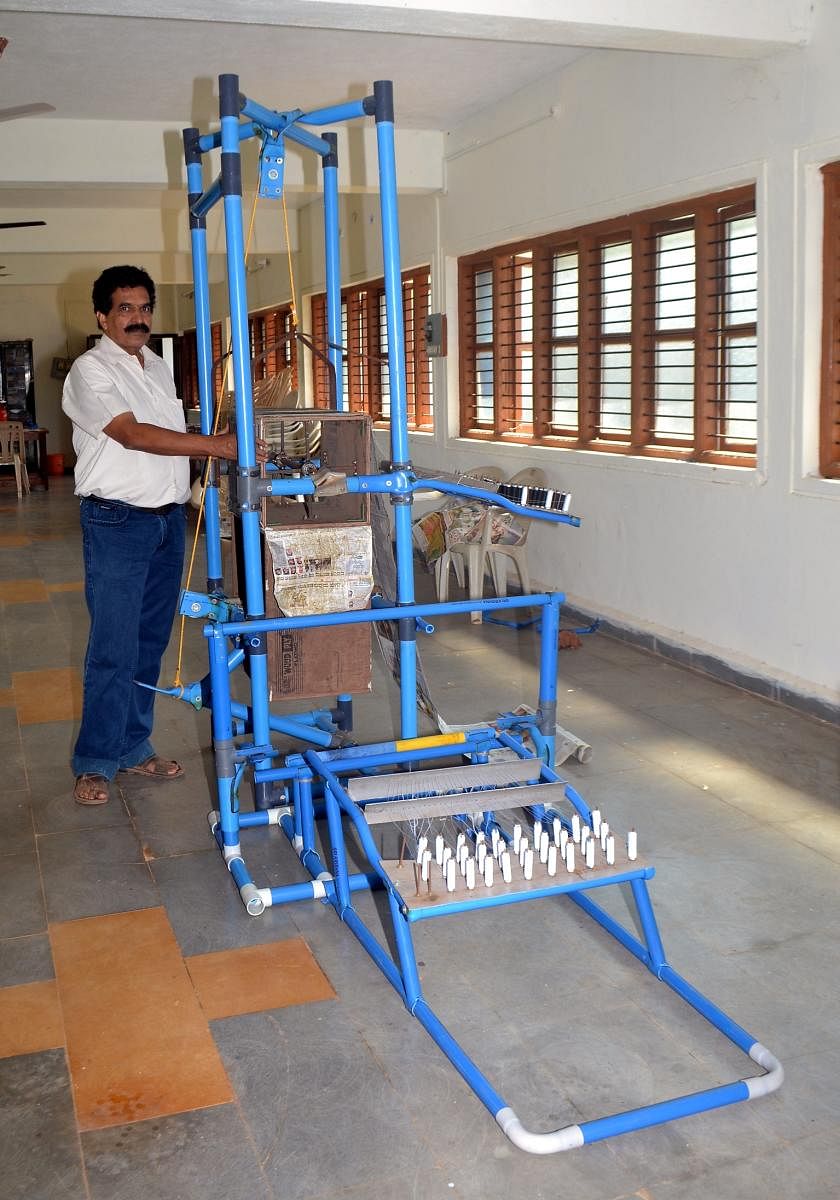

Even as shops in the state are gradually stopping the use of single-use plastic and offering customers alternatives like paper bags, these bags pose a problem when one tries to carry damp things like milk packets, vegetables and fish. Also, paper-only bags are expensive owing to the production cost.
To overcome these problems, Dhananjay Hegde, Joint Director of District Industries Centre, Karwar, has come up with paper bags that are not only leak-proof to a large extent but also reusable (when dried at room temperature), recyclable and affordable.
He had come up with a prototype (demo machine) last year and now, along with Dattatreya Bhat, a mechanical engineer from Kumta in Uttara Kannada district, is working on the development of an improved hand-operated machine that can be used on a commercial level.
“Following the ban on single-use plastic in the state in 2016, several shops/retailers began looking for viable alternatives. And the most feasible option they found was non-woven bags. Although these bags resemble cloth bags in look and feel and are widely seen as ‘eco-friendly’, most of them being used in the market have polypropylene and polyester, which is nothing but plastic. So, I wanted to come up with a better alternative,” says Hegde.
From paper to bags
To make these recyclable paper bags, Hegde uses scrap newspapers. Two layers of the paper are reinforced with a lining of banana fibre or stitching thread using a resin derived from corn starch. As sheets of newspapers are porous in nature, it absorbs the resin better making the bag leak-proof to a large extent. Corn starch resin can make the bag a bit harder. The powder of rain trees and other materials are added to give a smooth finish to the paper sheet. Thread rolls have been embedded in the machine to help in the lining. Once the rolls of the 'leak-proof' paper are ready, they can be given any shape and size.
"The bag can bear up to five kg weight, and our office staff has used and tested it. The weight-bearing capacity of the bag can further be increased,” explains Hegde.
He adds that these bags can be used as a packaging material and are more helpful in the coastal areas to carry fish. Plastic bags are used in huge quantities in fish markets.
Improvised machine
While Hegde had developed the demo machine using PVC pipes, the user-friendly machine being set up by Bhat has a fabricated steel structure with a unique pressing technique to get accurate dimensions and durability.
“Weaving machines available in the market cost around Rs 15 to 20 lakh, whereas our machine which produces the ready paper material has been developed at around Rs 1.5 lakh. This includes the research and development cost. On an average, we are expecting the production of 300 small paper bags on this machine per day. However, it would ultimately depend on the skill of the worker,” says Bhat.
He adds that he would begin production shortly. While a normal medium-sized paper bag would cost around Rs 15, these bags would cost around Rs 4 to 5. Once bulk production begins and the machine is perfected, the cost per bag would come down.
Hegde says normal paper which is completely bio-degradable too can be used to make these ‘leak-proof’ bags instead of the newspaper but it would cost more.
Also, unlike single-use plastics, these bags can be sent for recycling and thus can be checked from clogging drains or littering streets. The installation and operation cost of the machine is comparatively low and thus can be set up as a cottage industry. This can help provide employment to several people also.
Bengaluru-based Sandhya Narayanan, a solid waste management expert, said that though these newspaper bags cannot qualify as completely bio-degradable owing to some elements like the ink in the newspaper print, they are better than plastics as newspapers can be classified under recyclable material.
Dhananjay Hegde can be contacted on +91 94813 72678.